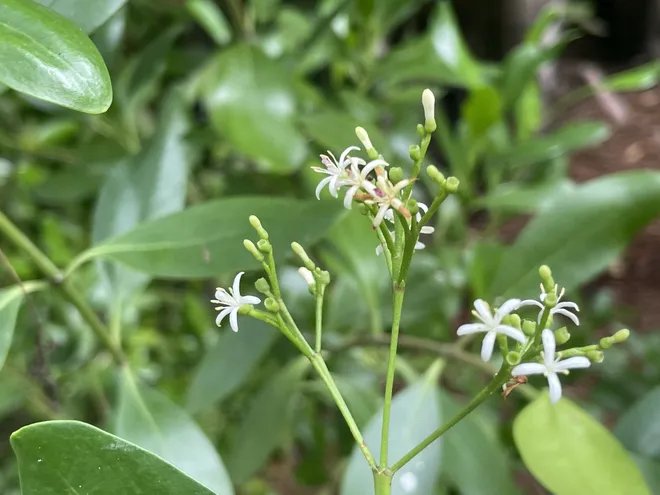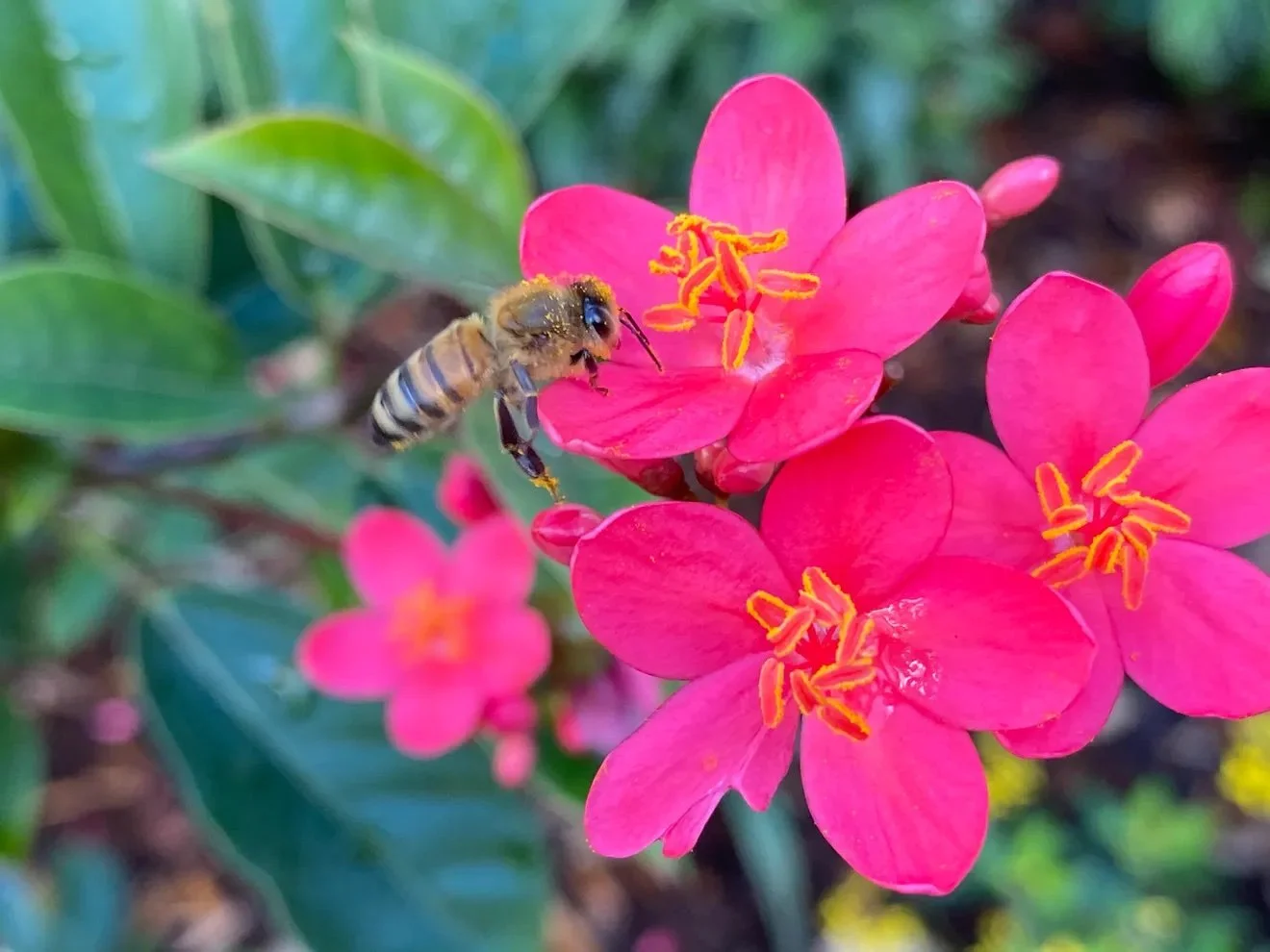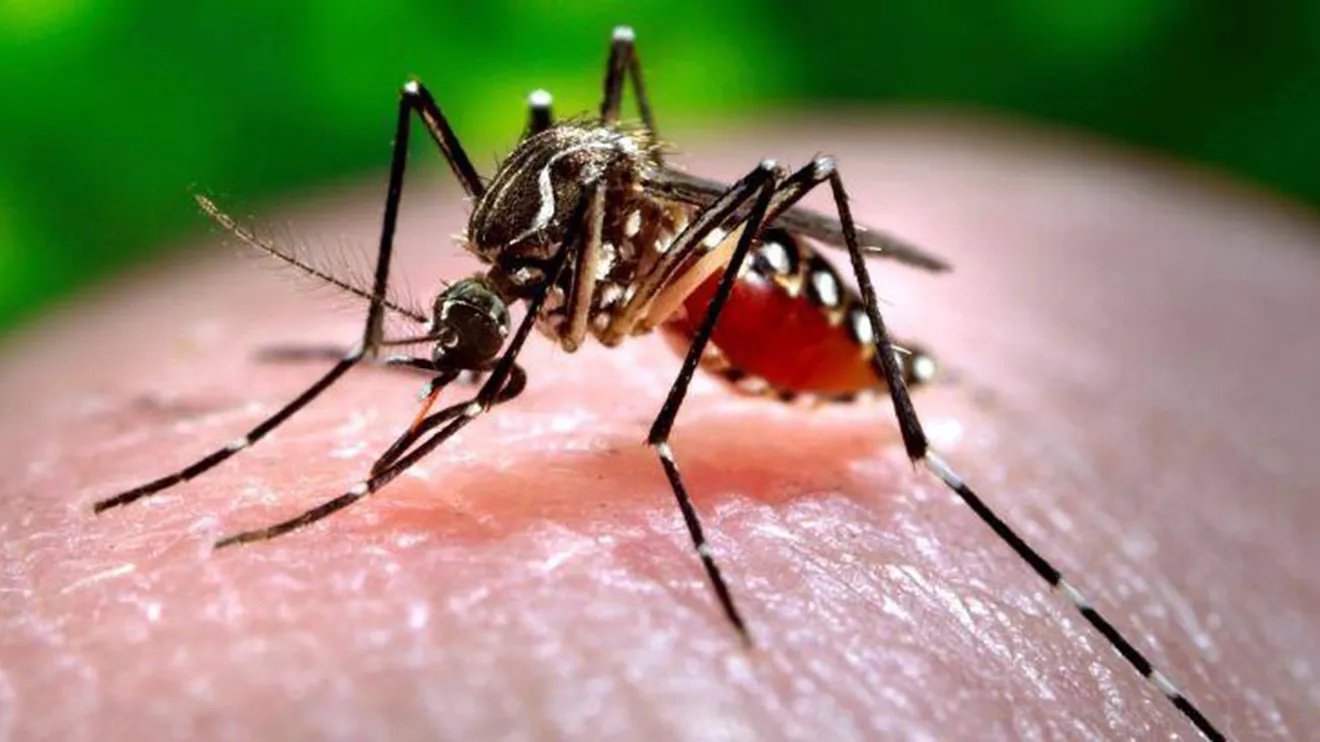Easy ways to avoid using deadly chemicals on your landscape
The snowberry, with its fragrance bell-shaped flowers, is a host plant for the Miami blue butterfly.
December 3, 2022
A few years ago, several homeowners on the North End put together a Healthy Yard Pledge, promising to reduce or eliminate the use of pesticides, herbicides and fungicides on their properties while urging their neighbors to do the same. It was an idea whose time was ripe, and many of us were encouraged by the popularity with which the pledge was received.
But that was then. Now, the North End has become a haven for “environmental” companies who arrive on Palm Beach every day to spray properties for whitefly, mosquitos, grubs and numerous other “undesirable” pests. I agree that mosquitoes are undesirable, but spraying hedges for them will not solve the problem, as evidenced by the numerous repetitive sprays needed. I’ll get to mosquitoes in a moment.
I stopped to chat with a technician from Florida Environmental parked on Reef Road the other day when the winds were blowing 18 knots and there was a 90 percent chance of rain.
I asked why he considered it safe to apply pesticides when it was so windy. Labels on all pesticides state that these should only be applied when winds are below 10 knots to avoid drift onto other plants and properties. Nor should they be used when rain is imminent due to runoff into local groundwater.
He was spraying a home on the Intracoastal Waterway, and when I questioned him about drift into the water, as the wind was coming from the northeast, he assured me that he was a professional and knew how to spray to avoid any possible contamination. He then informed me that he had 14 additional properties to visit that day.
The Bifen and deltamethrin he was applying for mosquitoes are both highly toxic to fish and aquatic invertebrates. Both are synthetic pyrethroids that attack insects’ nervous systems causing paralysis and death. Bifen is effective against more than 75 insects, but research shows that mosquitoes have built up a resistance. But all other insects including bees and other important pollinators are killed.
The label states this is hazardous to humans and domestic animals and provides a laundry list of precautions one should take in applying, including wearing long-sleeve shirts, pants, shoes and socks; chemical resistant gloves; respiratory masks; and protective eyewear. First aid for accidental inhaling, ingestion, or skin or eye contact instructs calling a poison control center or seeking emergency medical treatment.
It’s hard to believe this is being sprayed in areas where children are regularly passing in strollers or on bikes. The residual from the spray or powder lasts up to three months. So if you have children or pets, it would be wise to never let them outside if you apply this chemical.
The delicate white flowers of the black torch.
Deltamethrin, nicknamed Delta, is highly toxic to fish, bees, and pets and can be corrosive to skin and eyes. Imidacloprid, a neonicotinoid sold under the name Merit, is used to treat whitefly on ficus hedges.
This systemic pesticide travels through the plant’s roots, stems, leaves, flowers and fruits, making every part of the plant poisonous. Listed as a carcinogen to humans and pets, it can last for months or years in the soil, and leaches into groundwater and aquifers. It has been linked to numerous neurological disorders, from Parkinson’s to Alzheimer’s and autism, as well as to the colony collapse disorder decimating our honeybees.
After discussing this whole situation with the technician, he agreed that the number of pesticides being used on Palm Beach is out of control, and that the whitefly for which imidacloprid is used has mutated so many times that the chemical is largely ineffective. But then he said: “Hey, if I don’t do the spraying, someone else will.”
Deltamethrin is highly toxic to bees.
This is the crux of our problem and something that makes so little sense. It’s probably a fair assessment that most people coming to Florida are here for the wonderful climate: They enjoy recreating outdoors and love the warm weather for golf, tennis, biking, jogging, surfing, gardening, and just walking.
Why then, do we continue to poison our lawns, hedges and gardens, and in so doing, our soil, air, and water?
Eliminating mosquitoes
The most effective way to eliminate mosquitos is to control the eggs and larvae. James Gathany/CDC
Let’s get back to mosquitoes. The most effective way to eliminate mosquitoes is to control the eggs and larvae. Mosquitos breed and lay their eggs in still water, so removing standing water from your property is an important step in reducing their populations. Crotons and other bromeliads harbor water in their crowns so are perfect breeding spots for mosquitoes.
An efficient, non-toxic solution to kill larvae is mosquito dunks. These small, doughnut-shaped disks contain the bacterium Bti (Bacillus thuringiensis, subspecies Israelensis), which is deadly only to mosquito larvae. When placed in containers of water with some added organic material (leaves or salt hay), mosquitoes will lay their eggs and the Bti will kill the emerging larvae without affecting any other important pollinators.
The dunks are biodegradable and last for 30 days; placing them in pails, pools, or anywhere water collects around your yard is a terrific and effective mosquito deterrent.
Additionally, mosquitoes dislike strong sweet smells, especially citrus, so planting lemon balm, lemon-scented geraniums, lemongrass or even rosemary and lavender will help keep mosquitoes at bay.
Lavender can be effective in controlling mosquitoes. Pexcels Photos
The bottom line is that we are adding unnecessary poison to our lawns, hedges, and gardens. We are breathing it in, drinking it through contaminated groundwater and eating it in our food. There is so much spraying along the Lake Trail that it is often difficult to breathe after a pesticide application. Yet we continue to subject children in strollers and pets to these chemicals.
Each of us should assess the companies we hire to maintain our landscapes. Determining what chemicals are being used and how often, and whether they are even necessary would be a great first step to cleaning up our environment. The beneficial microorganisms in our soils are essential to maintaining the health of our lawns and landscapes; why attack these necessary organisms with chemicals?
Let’s rethink our relationship to the land around us and to our neighbors. Adding natives to our landscapes will require no chemicals while providing sustenance and habitat for endangered pollinators and wildlife.
Native additions
To end on a more upbeat note, here are a couple of terrific natives to add to your landscapes.
Birds love the berries of the black torch, a self-tolerant evergreen shrub.
Black torch (Erithalis fruticosa) is a medium-sized evergreen shrub with delicate white flowers, beautiful black berries and glossy deep-green foliage. Tolerant of salt, wind and flooding, this no-fuss plant loves coastal areas and adds distinguished beauty to any garden setting. It is listed as a threatened species so should be more widely planted; birds love the fruits and find shelter in the foliage.
The white berries of the snowberry, which often appears on the plant on the same as the flowers, are loved by birds and wildlife.
Snowberry (Chiococca alba) is a lovely shrub with fragrant bell-shaped flowers followed by clusters of small, bright white fruits that stand out against the dark-green foliage. Occasional pruning will keep this in bounds, as it may want to climb onto neighboring shrubs; the berries are loved by birds and wildlife, and this is the host plant for the Miami blue butterfly. Happy in part shade, this is salt- and drought-tolerant, so works well as a buffer or background plant. Give it some room, as it can reach a height of 10 feet.
The snowberry is the host plant for the Miami blue butterfly. U.S. Fish And Wildlife Service.








